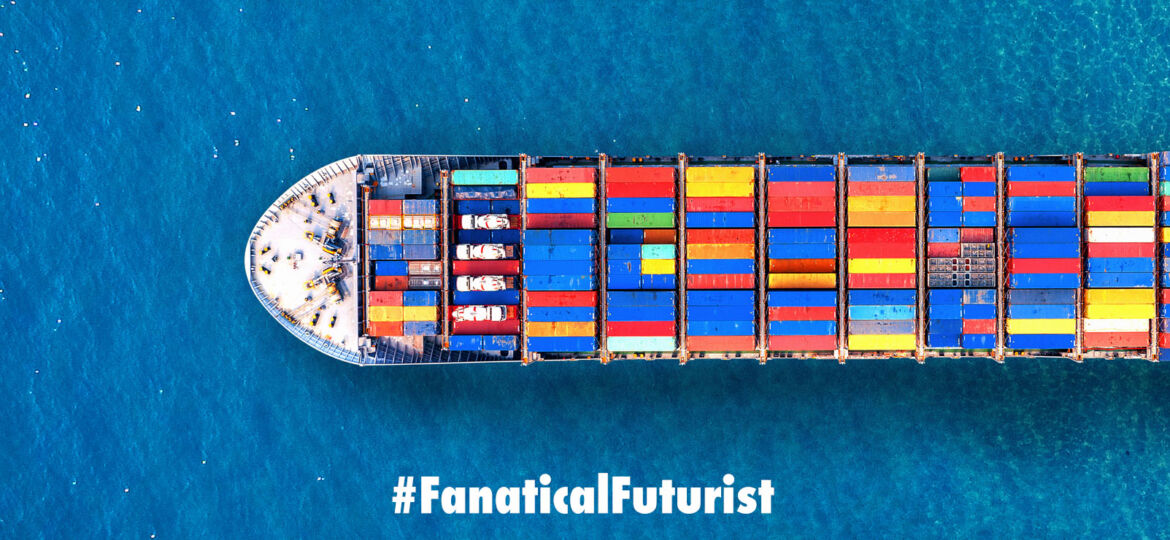
WHY THIS MATTERS IN BRIEF
The cargo industry is one of the world’s most polluting, but this new way to create fuel might make them more sustainable.
 Interested in the Exponential Future? Join our XPotential Community, future proof yourself with courses from our XPotential Academy, connect, watch a keynote, or browse my blog.
Interested in the Exponential Future? Join our XPotential Community, future proof yourself with courses from our XPotential Academy, connect, watch a keynote, or browse my blog.
A while ago I reported on a new MIT innovation that let underwater drones use turn seatwater into electricity, and now scientists have taken a major step by improving a process for turning seawater into hydrocarbons – a breakthrough that could ultimately mean that the world’s cargo ships, one of the most polluting industries on the planet could go green. The barebones of the technology has existed since a landmark 2014 paper, but scientists have been working since then to make the process energy-efficient and affordable enough to use at scale in the field with this work being be a major step towards that goal.
The idea of seawater fuel is very simple. Ships can collect seawater to catalyze into fuel, and they already have pumps on board to return the waste water. If ships are self-sufficient with the ability to produce a virtually unlimited amount of their own fuel, they’re not just environmentally sound – they’re free to stay at sea for much longer times, especially during some kind of unforeseen emergency, such as being forced to stay at sea for months longer because of Covid-19 as they are at the moment.
The reaction at play here is called Reverse Water Gas Shift, and it’s used in this context to turn Carbon Dioxide separated from regular seawater into Carbon Monoxide that can be synthesized into hydrocarbons. To do that, scientists use a reactive catalyst made of Molybdenum Carbide, a compound of extremely high-melting molybdenum and carbon.
In this case, the molybdenum carbide is interspersed with potassium and gamma alumina. Gamma alumina, like its siblings alpha and beta alumina, is another word for a form of aluminum oxide that’s effective as a catalytic support. Both potassium and gamma alumina help ensure the molybdenum carbide can put its most available, reactive, and energy-efficient foot forward in the reaction to turn carbon dioxide into carbon monoxide.
Futurity reports this research is set apart “by its use of plentiful and low-cost components instead of the typically precious ingredients in previous iterations:”
“[T]he potassium-modified molybdenum carbide catalyst is synthesised from low-cost components and did not show any signs of deactivation during continuous operation of the 10-day pilot-scale study. That’s why this demonstration of the molybdenum carbide catalyst is important.”
The modifying ingredients are already widely available for other industrial uses, meaning they’re easy to buy rather than synthesize or produce.
“Potassium-promoted molybdenum carbide supported on gamma alumina (K-Mo2C/γ-Al2O3) has recently been shown to be a highly active and selective RWGS catalyst in the laboratory, prompting us to investigate the viability of K-Mo2C/γ-Al2O3 for scale-up,” the researchers explain in their paper.
“Together, experiments across the molecular, laboratory and pilot scales demonstrate that K-Mo2C/γ-Al2O3 is an economically-viable RWGS catalyst with promising future applications in the US Naval Research Laboratory’s seawater-to-fuel process, downstream methanol synthesis and FT,” the study concludes.
If this step is a kind of feasibility study for the production of the catalyst itself, the next step is to examine how that combined catalyst really works, including in the real environment inside a ship. That means testing with impure water and gas and in environments where conditions can’t be as secured as they are in a lab. But this is a very promising development, and the researchers seem excited for what’s next.
















